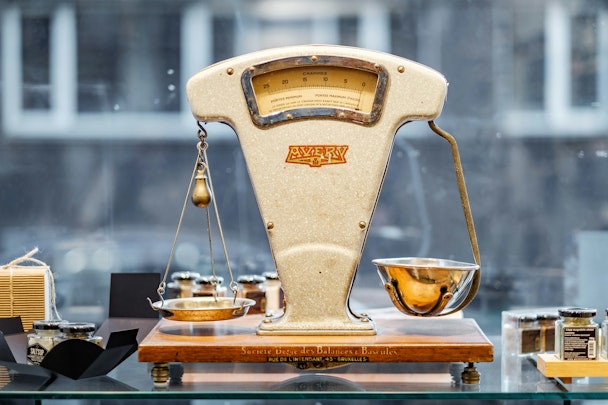The high-tech food tightrope: Consumers want innovative, but not artificial, food
For The Drum’s food & drink focus week, Amanda Atoyebi of Momentum tells the story of high-tech innovation in food, which has a balance to strike between innovation and the natural.

High-tech in food: A high-wire balancing act? / Piret Ilver via Unsplash
There’s no longer a question of whether technology has a role to play in food and drink categories. The question has become what role it plays in reaching even the deepest, most subliminal consumer desires.
Innovation has proven that different forms of technology can integrate into nearly every stage of the food and drink supply chain, providing various forms of value along the way. For emerging brands, technology offers a unique competitive edge right from the offset. For more established brands, technology provides a gateway to understand shoppers through a more personal, detailed lens.
So tech is well on its way to solving all the problems that keep us up at night, right? If only. But there’s another factor that is forcing brands to be more thoughtful and strategic with the technology they consider: the consumer.
Advertisement
Food tech: Where we want it, and where we don’t
Consumers are comfortable with technology playing a front-facing role in shopping experiences in the name of convenience. But consumer hesitations rise when it comes to technology in the processing or manufacturing of food and drink.
As technology has proliferated, shoppers have become more conscious of (and sensitive to) how foods are manufactured. According to McKinsey, 50% of consumers now prioritize reducing their intake of processed foods. Technology plays a dual role here, offering consumers greater transparency into product details while simultaneously prompting them to eliminate (what they perceive as) ‘ultra-processed’ or excessively manufactured items.
Thus, for food and drink brands, it has become increasingly complex but also vital to find the right balance between technology integration and selling a wholesome food or drink product. Or, in other words, disruptively meeting consumer desires without triggering speculation towards quality or nutritional value.
Advertisement
Walking the tightrope: NotCo
A best-in-class example of a brand that has done this very well is plant-based brand NotCo. The plant-based industry is seeing increased competition and shopper expectations continue to set new benchmarks.
NotCo uses a proprietary artificial intelligence program called Giuseppe to analyze the structure of an animal-based food at its molecular level, then replicates it using only plant-based ingredients. Giuseppe has played a huge role in the brand’s ability to deliver true-to-taste alternatives across food and drink. This helps the brand to meet the (very loud) desire for plant-based products that hold the taste and texture integrity of animal-based counterparts. And for consumers avoiding processed foods, the brand has a full portfolio of wholesome non-dairy products.
Take the brand’s vegan mac & cheese, launched in 2023 in partnership with Kraft: we see a disruptive emerging brand and an established brand come together to meet the needs of a wider set of dairy-free consumers.
Suggested newsletters for you
While the Giuseppe technology is integrated deep into the manufacturing process, the end-consumer only experiences the benefits of a tasty dairy-free product with uncompromised health and nutritional claims.
Technology acts as a double-edged sword for marketers working in grocery, delivering ways to completely disrupt the way food and drink products are approached, manufactured, marketed, sold, and everything in-between. It provides a way to reach even the deepest desires by expanding the playing field of what is possible to create.
But, when used too heavily or in the wrong stage of product development, technology has the power to hurt a brand as strongly as it has the power to propel it forward. Consumer preferences will continue to change as their knowledge of food and nutrition grows. Finding and maintaining a state of balance between delivering wholesome products and using technology to solve for an unmet need will be the key.
For more about food, drink, and the smartest ways to market them, check out our dedicated focus week hub.
Content by The Drum Network member:

Momentum Worldwide
Momentum Worldwide is a global experience agency partnering with and transforming the world’s most famous brands since 1987. Built on the simple truth that it’s...
Find out more
